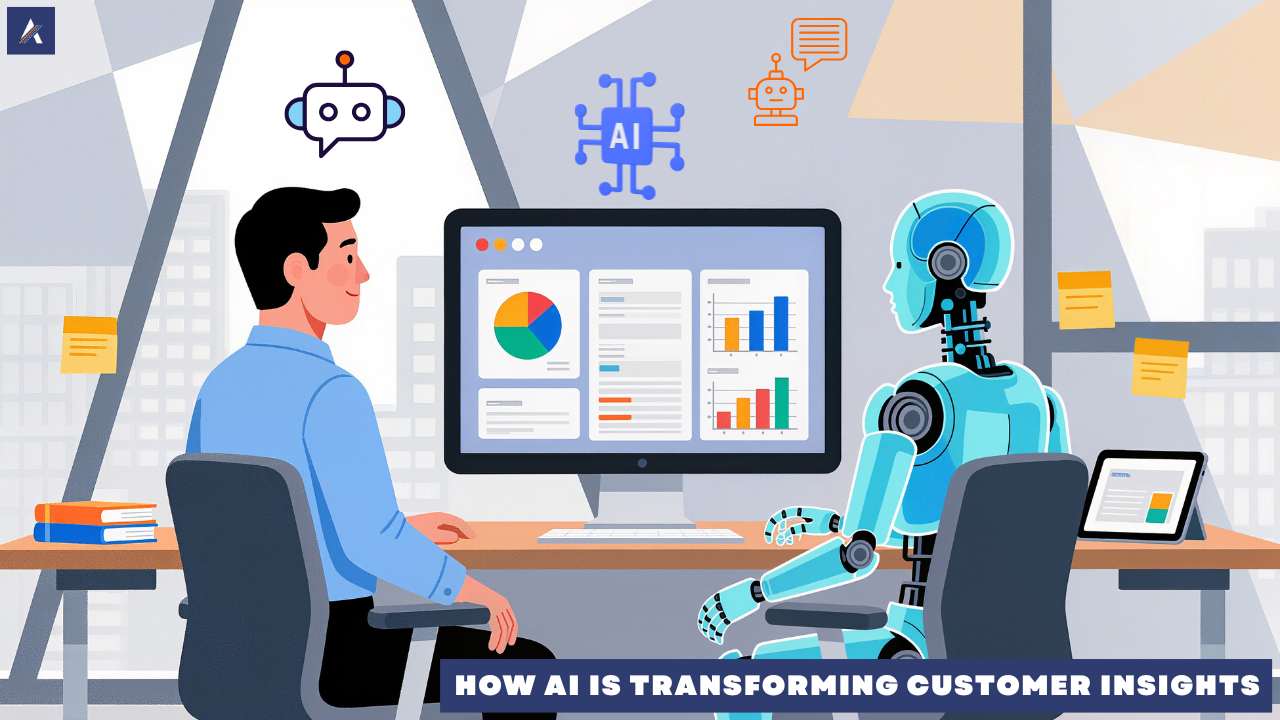In the moment’s digital-first frugality, understanding guests is no longer voluntary — it’s essential for survival. Companies that truly “ hear ” to their guests gain a significant competitive edge. still, traditional feedback collection styles homemade checks, call center notes, or textbook- grounded forms — frequently fail to capture the complete client sentiment. This is where Artificial Intelligence( AI) is making a profound difference. By integrating AI with feedback software, businesses can prize deeper perceptivity, make data- driven opinions, and prognosticate client requirements like noway ahead.
The elaboration of Feedback From Manual to Intelligent Systems
In history, collecting feedback was a tedious and time- consuming process. Businesses reckoned on published checks or introductory online forms that handled limited environments. The feedback frequently remained qualitative and unshaped, making it delicate to dissect at scale.
The preface of digital platforms changed this dynamic, but indeed also, companies faced the challenge of information load. Sorting through thousands of client responses manually was n’t doable.
Enter AI- driven feedback systems — powered by machine literacy( ML), natural language processing( NLP), and prophetic analytics. These tools automate data collection, dissect textbook, descry emotion, and identify arising trends in real time. What once took weeks of homemade analysis can now be achieved in twinkles with unmatched delicacy.
How AI Is Transforming Feedback Software
AI is n’t just making feedback systems briskly it’s making them smarter. Then’s how
1. Sentiment Analysis and Emotional Understanding
AI algorithms can reuse written feedback and describe feelings behind words. For example, if a client writes, “ The product is okay, but the delivery was disappointing, ” a human might miss the mixed sentiment. AI tools, still, fete both the positive and negative tones, grading feedback with lesser perfection.
This allows businesses to understand client feelings at scale — detecting happiness, frustration, or disappointment across thousands of commentary.
2. Automated Categorization and trailing
Traditional systems needed brigades to manually sort feedback into orders similar as “ pricing, ” “ product quality, ” or “ support. ” AI automates this process. Using NLP, feedback software can automatically tag each comment grounded on keywords, environment, and sentiment.
This intelligent categorization helps brigades snappily identify which areas of the business need attention.
3. Prophetic perceptivity
One of AI’s most important operations in feedback analysis is its capability to prognosticate unborn trends. By assaying feedback and behavioral data, AI systems can read implicit client issues or preferences.
For illustration, if multiple guests start mentioning “ slow lading speed ” in app feedback, AI can flag it as a recreating trend before it becomes a major problem — helping companies take visionary action.
4. Voice and Chat Feedback Analysis
As voice sidekicks and chatbots come mainstream, guests are participating in feedback through speech and live converse more frequently than through forms. AI can now dissect voice tone, speech patterns, and converse relations to prize meaningful perceptivity from these exchanges.
This expansion allows associations to collect feedback from multiple channels, creating a more complete understanding of the client trip.
5. Personalized Customer Experience
Customer feedback software—it uses it to enhance personalization. When a customer provides feedback, AI systems can adjust future product recommendations, marketing messages, or support interactions based on that input.
This level of personalization makes customers feel valued and heard, leading to higher satisfaction and loyalty.
Benefits of AI-Driven Feedback Systems
The integration of artificial intelligence into feedback software delivers numerous advantages for businesses:
1. Faster Response Time
AI processes large volumes of data almost instantly. This allows companies to act quickly on negative feedback, resolve issues faster, and demonstrate responsiveness to customer needs.
2. Deeper Insights from Unstructured Data
Most customer feedback comes in the form of open-ended text. AI can interpret this unstructured data—something that traditional analytics tools struggle with. By identifying themes, tone, and patterns, AI converts messy data into actionable insights.
3. Improved Decision-Making
With AI-powered dashboards and real-time analytics, decision-makers can visualize customer sentiment across regions, products, or campaigns. These insights help prioritize improvements based on actual customer needs.
4. Enhanced Customer Loyalty
When customers see that their opinions are acknowledged and acted upon, trust increases. AI allows companies to create a feedback loop—collecting insights, implementing changes, and communicating back to customers. This transparency drives loyalty.
5. Reduced Human Bias
Human interpretation of feedback is often influenced by personal assumptions or emotions. AI eliminates this bias, offering objective, data-driven insights that reflect the true customer perspective.
Real-World Applications of AI in Feedback Management
Many leading companies are already leveraging AI to refine their feedback processes:
- E-commerce Platforms: Platforms like Amazon and Shopify use AI to monitor product reviews, identifying patterns in customer complaints or satisfaction levels to adjust inventory or product descriptions.
- Hospitality Industry: Hotels and travel companies use AI-driven sentiment analysis tools to understand guest reviews and improve customer experiences.
- Customer Support Centers: AI chatbots not only collect feedback after support interactions but also analyze conversation tone and satisfaction levels to improve agent performance.
- Healthcare Providers: Hospitals use AI feedback tools to assess patient satisfaction, predict service quality issues, and enhance care delivery.
The part of Machine literacy and Big Data
Machine literacy plays a critical part in refining AI feedback systems. The further data these systems dissect, the smarter they come. Over time, they learn from patterns, fete recreating issues, and indeed suggest corrective conduct automatically.
Combined with big data analytics, AI tools can relate feedback trends with functional criteria — like deals numbers or churn rates to pinpoint how client sentiment directly affects business performance.
Challenges and Considerations
While the advantages are compelling, businesses must navigate certain challenges when enforcing AI feedback results
Data sequestration Handling client data responsibly is essential. Companies must misbehave with regulations like GDPR to insure that AI tools do n’t misuse particular information.
Integration with Being Systems Feedback software must seamlessly connect with CRM, ERP, and marketing systems for maximum effectiveness.
Interpretation delicacy AI models must be continually trained to understand artistic nuances, shoptalk, and contextual meaning for global cult.
By addressing these challenges through transparent programs and robust AI governance, associations can harness the full eventuality of artificial intelligence in client feedback.
The Future Outlook
The future of AI- driven feedback systems is promising. As AI continues to advance, feedback software will move beyond reactive analysis to visionary engagement.
unborn systems wo n’t only interpret feedback but also initiate automated advancements similar as conforming pricing, bodying content, or driving client service conduct incontinently.
also, with advances in generative AI, companies may soon have tools that epitomize complex feedback data into easy- to- understand reports, or indeed suggest practicable results automatically.
Conclusion
The metamorphosis brought by Artificial Intelligence in feedback software is reconsidering how businesses connect with their guests. AI enables associations to move from simply collecting opinions to deeply understanding mortal feelings, provocations, and prospects.
In this new period, feedback is no longer a unresistant process it’s an intelligent dialogue between businesses and their guests. Those who embrace AI- driven perceptivity moment will be the bones
shaping hereafter’s client experience geography.

Sandeep Kumar is the Founder & CEO of Aitude, a leading AI tools, research, and tutorial platform dedicated to empowering learners, researchers, and innovators. Under his leadership, Aitude has become a go-to resource for those seeking the latest in artificial intelligence, machine learning, computer vision, and development strategies.


